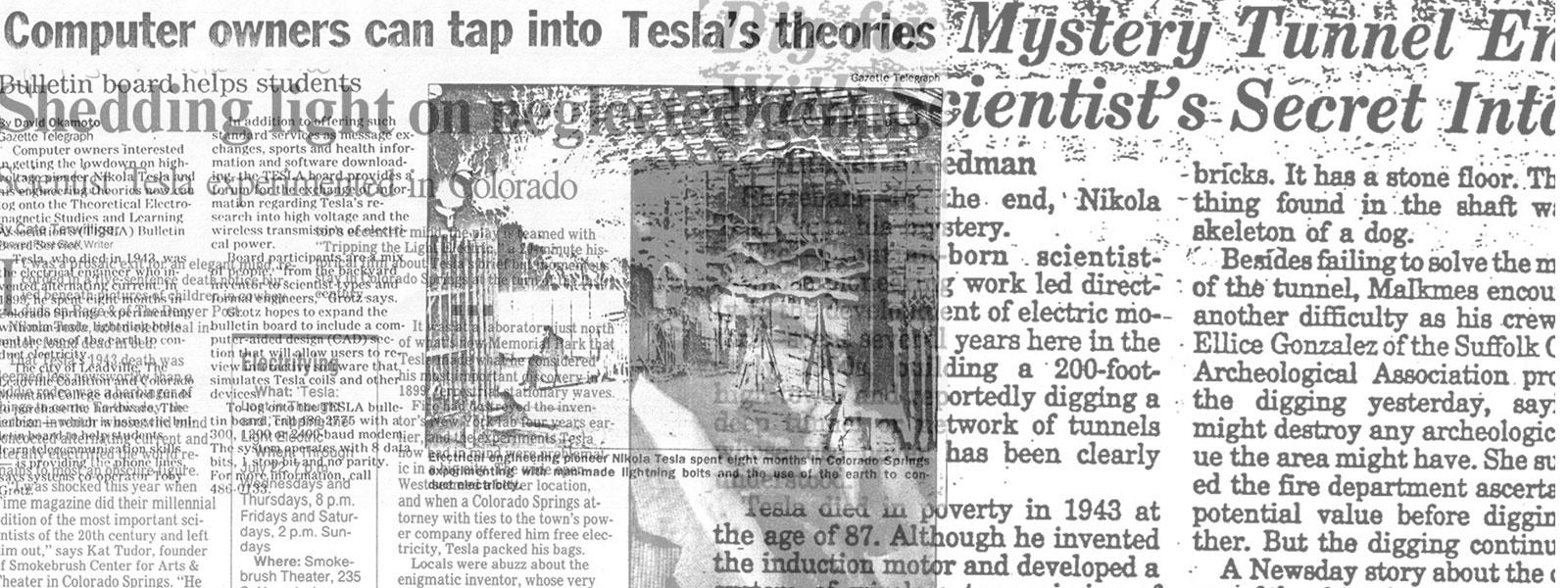
Nikola Tesla Articles
Mr. Tesla on the Wireless Transmission of Power
To the Editor of The World:
I have enjoyed very much the odd prediction of Sir Hugh Bell, President of the Iron and Steel Institute, with reference to the wireless transmission of power, reported in The World of the 10th inst.
With all the respect due to that great institution I would take the liberty to remark that if its President is a genuine prophet he must have overslept himself a trifle. Sir Hugh would honor me if he would carefully peruse my British patent No. 8,200, in which I have recorded some of my discoveries and experiments, and which may influence him to considerably reduce his conservative estimate of one hundred years for the fulfillment of his prophecy.
Personally, basing myself on the knowledge of this art to which I have devoted my best energies, I do not hesitate to state here for future reference and as a test of accuracy of my scientific forecast that flying machines and ships propelled by electricity transmitted without wire will have ceased to be a wonder in ten years from now. I would say five were it not that there is such a thing as "inertia of human opinion" resisting revolutionary ideas.
It is idle to believe that because man is endowed with higher attributes his material evolution is governed by other than general physical laws. If the genius of invention were to reveal to-morrow the secret of immortality, of eternal beauty and youth, for which all humanity is aching, the same inexorable agents which prevent a mass from changing suddenly its velocity would likewise resist the force of the new knowledge until time gradually modifies human thought.
What has amused me still more, however, is the curious interview with Lewis Nixon, the naval contractor, printed in The World of the 11th inst. Is it possible that the famous designer of the Oregon is not better versed in editorial matters than some of my farming neighbors of Shoreham? One cannot escape that conviction.
We are not in the dark as regards the electrical energy contained in the earth. It is altogether too insignificant for any industrial use. The current circulating through the globe is of enormous volume but of small tension, and could perform but little work. Beside, how does Nixon propose to coax the current from the natural path of low resistance into an artificial channel of high resistance? Surely he knows that water does not flow up hill. It is absurd of him to compare the inexhaustible dynamic energy of wind with the magnetic energy of the earth, which is minute in amount and in a static condition.
The torpedo he proposes to build is not novel. The principle is old. I could refer him to some of my own suggestions of nine years ago. There are many practical difficulties in the carrying out of the idea, and as much better means for destroying a submarine are available it is doubtful that such a torpedo will ever be constructed.
Nixon has failed to grasp that in my wireless system the effect does not diminish with distance. The Hertz waves have nothing to do with it except that some of my apparatus may be used in their production. So too a Kohinoor might be employed to cut window-glass. And yet, the seeming paradox can be easily understood by any man of ordinary intelligence.
Imagine only that the earth were a hollow shell or reservoir in which the transmitter would compress some fluid, as air, for operating machinery in various localities. What difference would it make when this reservoir is tapped to supply the compressed fluid to the motor? None whatever, for the pressure is the same everywhere. This is also true of my electrical system, with all considerations in its favor. In such a mechanical system of power distribution great losses are unavoidable and definite limits in the quality of the energy transmitted exist. Not so in the electrical wireless supply. It would not be difficult to convey to one of our liners, say, 50,000 horsepower from a plant located at Niagara, Victoria or other waterfall, absolutely irrespective of location. In fact, there would not be a difference of more than a small fraction of one per cent, whether the source of energy be in the vicinity of the vessel or 12,000 miles away, at the antipodes.
Nikola Tesla
New York, May 16, 1907